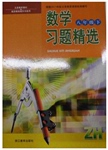题目内容
What ___ we had during the trip!
A. a wonderful time B. a beautiful time C.a good news D. wonderful time
A
解析:
这是考have a good/wonderful time固定短语。

 习题精选系列答案
习题精选系列答案You've heard of the fat suit and the pregnancy suit;now meet AGNES—the old person suit.
AGNES stands for “Age Gain Now Empathy(换位体验) System” and was designed by researchers at MIT's AgeLab to let you know what it feels like—physically—to be 75 years old.“The business of old age demands new tools,”said Joseph Coughlin,director of the AgeLab.“While focus groups and observations and surveys can help you understand what the older consumer needs and wants,young marketers never get that‘Ah ha!’moment of having difficulty opening a jar, or getting in and out of a car.That’s what AGNES provides.”
Coughlin and his team carefully adjusted the suit to make the wearer just as uncomfortable as an old person who has spent a lifetime eating poorly and not doing much exercise.Special shoes provide a feeling of imbalance,while braces on the knees and elbows limit joint mobility.Gloves give the feeling of decreased strength and mobility in the hands and wrists,and earplugs make it difficult to hear high—pitched sounds and soft tones.A helmet with straps(带)attached to it presses the spine(脊柱),and more straps attached to the shoes decrease hamstring flexibility, and shortens the wearer's step.
AGNES has been used most recently by a group of students working on a design of an updated walker.By wearing the suit they could see for themselves what design and materials would make the most sense for a physically limited older person.Coughlin said the suit has also been used by clothing companies,car companies and retail goods companies to help them understand the limitations of an older consumer.
“AGNES is not the destiny of everybody,” he said.“She is a badly behaved lady who didn't eat and exercise very well.A secondary benefit we’ve found with AGNES is that it has become a powerful tool to get younger people to invest in their long-term health.”
【小题1】AGNES has been developed to .
| A.make the users more comfortable |
| B.1et us understand old people better |
| C.help old people move more quickly |
| D.produce new tools for the old-age business |
| A.someone who travels a lot |
| B.a physically limited old person |
| C.some equipment that helps old people walk |
| D.a company whose service involves old people |
| A.Young people respect old people. |
| B.Old-age business improves their service |
| C.Old people eat and exercise well. |
| D.Young people eat and exercise well. |
Laurie and Jake Rohrer live near the small town of Ha’iku on the Hawaiian island of Maui. They have a recording studio in their home. They are helping to support the music of artists who they say are extremely talented yet largely unknown.
Jake built a recording studio in their garage. The couple produced a CD with a singer named Ata.
The Rohrers wanted to continue producing music, so they established their own record label. They chose the name that one of their artists had given to their home ------ Ululoa.
The Rohrers decided to invite only native singers they liked to record with them. They say they give their artists freedom of expression and cultural respect. They also give them half the profits once sales have paid back the cost of producing a CD.
There are no contracts (合同). Jake Rohrer says everything is settled with a handshake based on the Hawaiian tradition of pono.
In Hawaiian culture, stories are passed down from generation to generation through songs. Many artists say the Rohrer are helping to save this oral tradition. But Laurie Rohrer says they are just trying to produce good music.
Laurie Rohrer said, “ It cannot be said that we are doing what we do to preserve Hawaiian culture. But if recording Hawaiian people and their music has an end result, we would be very happy.”
Laurie and Jake Rohrer are already watching the next generation of Hawaiian singers. When the best of them are ready, they will be invited to record on the Ululoa label.
| 71. _______________ in Hawaii | |
| 72. ___________ | The Rohrers |
| Purpose | To support the music of artists extremely talented yet largely 73. __________ |
| Place | 74. ___________ |
| Record label name | Ululoa |
| 75. _________ | Only native singers |
| How to 76. _______ _ | A handshake based on the 77. ___________ Hawaiian pono |
| 78. _________ | Helping to 79. ________________ Producing good music |
| Future plan | 80. ________ new Hawaiian singers to record on the Ululoa label |